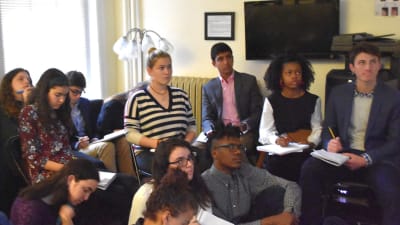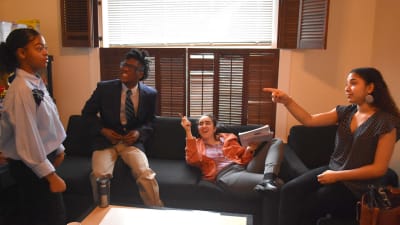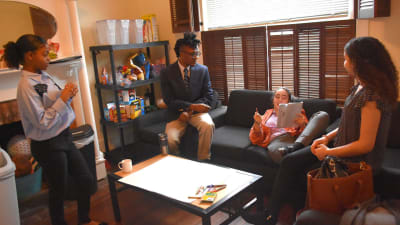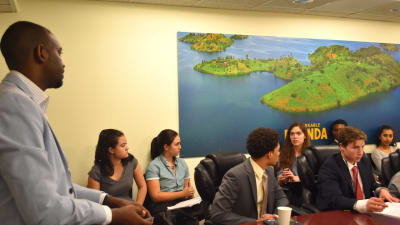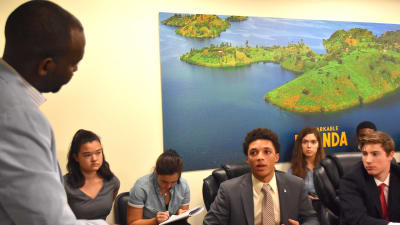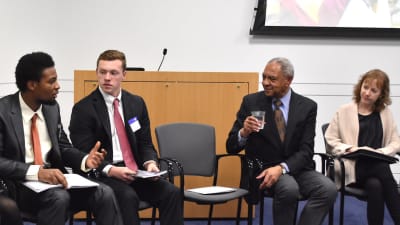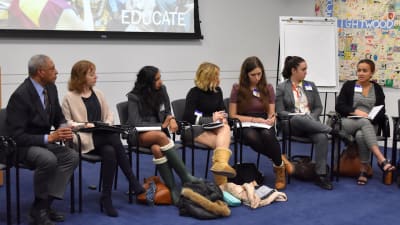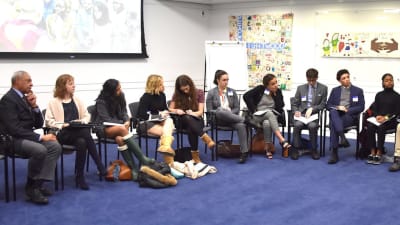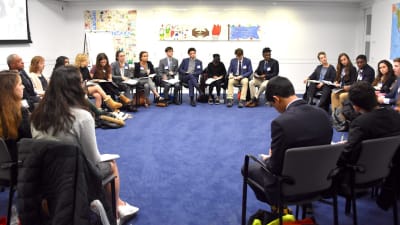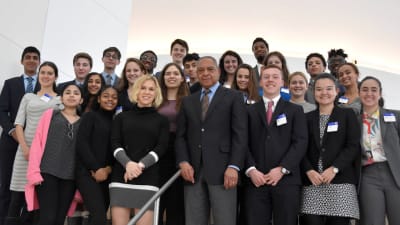Spring 2018 and Ghosts of Rwanda Night
It is a sober SEGL tradition: Ghosts of Rwanda Night. Since our first semester, the powerful PBS Frontline documentary has challenged our students with essential leadership questions: What is the most ethical response to mass atrocities? Should American leaders always prioritize American interests? Is it ever worth risking American lives to help halt tragedy abroad? How do we prevent human rights abuses from ever occurring? Ghosts, and our second case study of the semester, poses these questions.
The case began Friday evening, when we watched the documentary together in our West dormitory. The discussion that followed was reflective and emotional. Many students continued their conversations in dorm rooms after hours, and reflected on the film in weekly English journal entries.
Three of the leaders featured in the documentary are longtime SEGL guest speakers, and we met with two of them this week.
Carl Wilkens is a former Adventist missionary who was the head of his church’s relief mission in Rwanda during the genocide. He was the only American to stay behind in 1994, and is most well-known for (among other acts) saving an entire orphanage from Interahamwe machetes. To SEGL graduates, he is a winner of our coveted “Golden Mug” award, which our graduates give to the speaker who has made the biggest difference in their lives. (Carl is also an honorary SEGL teacher; twice he has co-led a group of our students to Rwanda. To learn more about our 2018 trip–our third journey to the Land of 1000 Hills–visit our SEGL in Rwanda page.)
Wilkens videoconferenced from the road (he plans to visit DC later this semester). He is the founder of World Outside My Shoes, a genocide prevention NGO that travels the country speaking to schools, universities, and others. The students asked him a wide range of questions–some personal, some political–and listened intently as he carefully and thoroughly addressed each one.
On Wednesday, we trekked to the United States Institute of Peace to hear from Ambassador George Moose and the USIP staff, which introduced the Institute to students. Moose was Assistant Secretary of State for African Affairs during the genocide. Moose (another Golden Mug honoree) helped students appreciate the bureaucratic decision making hurdles that stymied attempts to intervene. More important, he helped students see the legitimate reasons governments do not want to intervene in such conflicts.
(The third longtime SEGL guest speaker featured in the film is current UPS Vice President for Global Affairs Laura Lane. Although Lane no longer speaks publicly about her time in Rwanda, she gave a TED talk in 2015 that is very similar to the story she has told countless SEGL graduates. You can view that talk here.)
On Friday afternoon, we traveled to the Rwandan Embassy and met with lead officials there who shared information about Rwanda’s reconciliation attempts, the nation’s current challenges, and the officials’ personal stories. At the end of the visit Mathilde Mukantabana, the Rwandan Ambassador to the U.S., stopped by for a few words and pictures. We will round out this case study with a Saturday Academy visit to the U.S. Holocaust Memorial Museum.
The week also brought several other highlights. For example, Wednesday morning the students took part in a favorite SEGL activity–the Leadership Styles exercise. With two questions (“Is your first instinct to observe or speak when in a group making a decision?” “When you make important decisions, do you decide with your head or your heart?”) the students divided themselves up into four classic leadership styles: Driver, Expressive, Analyst, and Supportive. Each group completed the same given task, but ended up with very different results; the ensuing conversation revealed, among other insights, the importance of having each style reflected in any decision making group (or, perhaps, in any decision making leader!). This week students also participated in the first edition of our Books and Basketball community service project (more on that in a future post), their first student-led School Meeting, and continued discussion about the Trump Administration’s latest doings.
Next up: the Israeli-Palestinian Conflict, which has lurched back into the news just this week.



